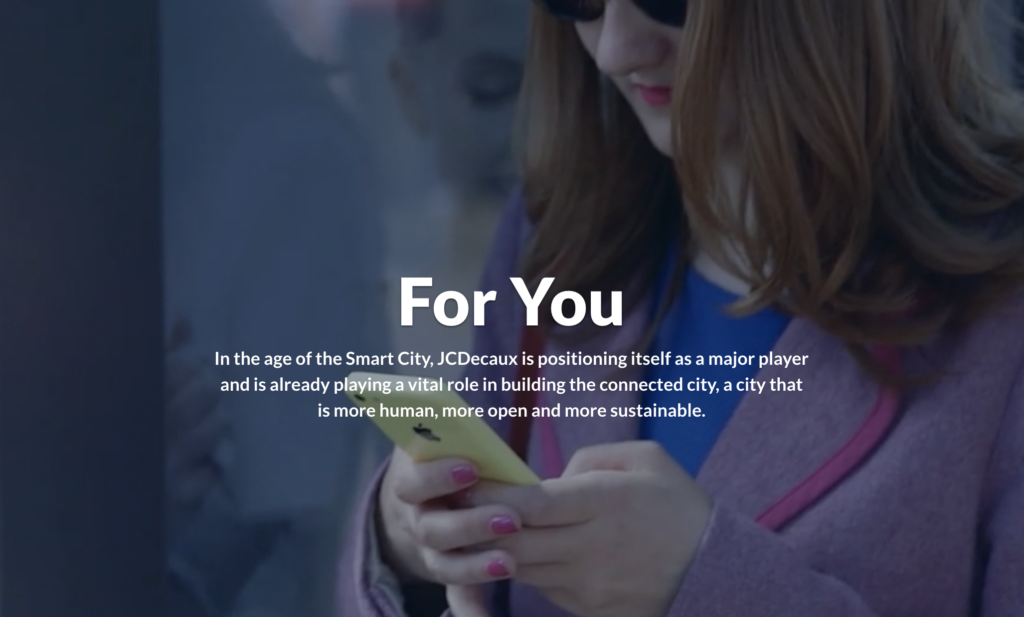Since Agenda 2030 was signed in September 2015, the 17 Sustainable Development Goals has come to dominate everything. The aim is to make us consume less and recycle more. Ready to lead us on the path to towards a zero-emission Utopia are the same or same type of multinational corporations that have polluted the environment all through the industrial revolution, and used planned obsolescence and advertising to keep us consuming their products at an increasingly feverish pace.

Just like in a dystopian satire by Terry Gilliam, advertising follows us everywhere – on TV, on the radio, in newspapers and magazines, in our mailboxes, on the Internet, on our cellphones, in the city, on public transport and even along roads (despite the documented traffic hazard). [1] You just cannot escape it.
Huge funds and efforts have been invested in research on how to bypass critical thinking and influence emotions and the subconscious directly, and on figuring out which messages and methods have the best effects on various segments of the population. [2] There seems to be no end to the creativity when it comes to inventing and refining ever new or better methods of manipulation. This incessant daily brainwashing just goes on and on, despite its many harmful effects on mental health, the environment, local business, and light pollution.
Yet, among the 17 goals and 169 sub-goals of Agenda 2030 the word “advertising” is not mentioned. Nor does it seem to bother the Club of Rome, despite its message of “limits to growth”. Do any green parties or green NGOs focus on the harmful effects of advertising? Well, a few have actually adressed the problem from a climate perspective, but the only solutions offered are greenwashing compensation schemes called “sustainable advertising“.
JCDecaux
Very few organisations seem to be dedicated to actually limiting ads. One of those few is the UK Adfree Cities Network, offering guidance on how to stop public billboards on a local level. Their website includes a very interesting analysis of the latest initiative from French multinational corporation JCDecaux, market leader in outdoor advertising. The article highlights the company’s successful strategy for circumventing local authorities efforts to limit public billboards.
JCDecaux was founded in 1964 by Jean-Claude Decaux (1937–2016). In 2002, he left the management of the company to two of his three sons, Jean-François Decaux and Jean-Charles Decaux (a World Economic Forum “Young Global Leader” 2005). The reason WEF likes the Decaux family is likely their early use of public–private partnership. In return for tax-free ad space around the city, the business model includes offering cities “free” bus shelters, self-cleaning public restrooms, waste bins, park benches and other street furniture of attractive design – with JCDecaux billboards, of course.

In 2003, JCDecaux also started offering bicycle rental systems in several French cities, often in return for 10-year billboard contracts. By 2014, this lucrative PPP had expanded to over 30 cities over the world.
And now they offer even more advanced products and services in return for city ad space. Their new digital billboards are presented as “smart communication hubs” which come with a host of services, including defibrillators, wi-fi and CCTV! All to circumvent any resistance to public billboards and adding to the “smart city”.
“They will be installed with a phone that has the ability to be voice-activated to call landlines and charities, navigation aids, free wi-fi and device charging. They will also be fitted with CCTV cameras and equipment to monitor weather, air quality and street traffic.”
“Predictably from the company, the ‘hubs’ are basically large digital advertising screens with a defibrillator attached for good community value to get them past planning officers.” [3]
What planning board can refuse such a generous offer? These features also happen to fit in perfectly with the “Fourth Industrial Revolution” technocratic future the World Economic Forum and its corporate partners have planned for the world.

Just like like every other corporation aspiring to dominate the market and pass Agenda 2030 demands, JCDecaux has put much effort into reinventing their image from aggressive advertising company to humanitarian environmentalists. Unnecessary electric billboards using energy day and night, now with built-in surveillance, seems to be what will save the planet. And the children…

…and you.

Much more could be said about advertising. This is just one small example of how problematic not only the messages and omnipresence of advertising can be, but also the deceitful methods for acquiring public ad spaces in our cities. Especially alarming is the push for public billboards that will double as surveillance for Big Brother. Unless citizens petition their local authorities to say “no” both to spying billboards and to spying streetlights. [4]
Inger Nordangård
References
1. Scenic America – “Swedish Study Shows Digital Billboards Distract Drivers”
2. Jeffrey Robinson – The Manipulators: A Conspiracy to Make Us Buy, Simon & Schuster, 1999
3. Adblock Lambert – “JCDecaux’s “communication hubs” don’t fool us“, Adfree Cities, 2022
4. Sara Holder – “In San Diego, ‘Smart’ Streetlights Spark Surveillance Reform“, Bloomberg, 2020
Relatated posts:
WEFs “Young Global Leaders”
Read more about World Economic Forum, Agenda 2030, and the Fourth Industrial Revolution in Rockefeller – Controlling the Game
© Stiftelsen Pharos 2021. Contact us about republishing permissions.
Images on this blog are used under “Fair Use” for educational purposes only.
 Pharos
Pharos